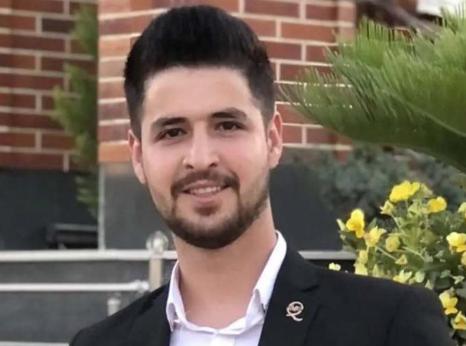Iran: Grave Execution Risk For Youth With Disability

Mohammad Ghobadlou was under the supervision of a psychiatric hospital for bipolar disorder since the age of 15. Amnesty International learned that during the two months leading to the incident and his arrest on 22 September 2022, he had stopped taking his medication leading to distress and extreme mood episodes. Following his arrest, he was held for several days at a Public Security Police of the Law Enforcement Command (police-e amniat) detention centre, where, according to information gathered by Amnesty International, he was severely beaten. Amnesty International learned that after repeated beatings and promises by interrogators to release him and facilitate his departure from Iran, he was forced to “confess” and read a pre-typed statement in front of a video camera. He spent the rest of the investigation stage, lasting until late October 2022, at the Greater Tehran Central Penitentiary. During this period, he was taken several times to the lead investigator of Branch 1 of the Office of the Prosecutor in Robat Karim for questioning. During each transfer, he said officials tied his hands and feet together, pushed him under the rear seat of a car and beat him.
Mohammad Ghobadlou was denied his bipolar medication from arrest until after his first trial session on 29 October 2022. This abusive practice, which violates the absolution prohibition of torture and other ill-treatment, led to a deterioration in his mental health. On 1 November 2022, in a public video, his mother said authorities had barred her son from receiving visits, were holding him in solitary confinement and denying him medication. The authorities subsequently transferred him from the Greater Tehran Central Penitentiary to Rajai’ Shahr prison. There, they provided him with his medication, but also placed him in solitary confinement until a few days before his second trial session on 15 November. Amnesty International reviewed two official letters, dated 11 and 15 October 2022, sent by senior prison officials at the Greater Tehran Central Penitentiary to the prosecution authorities, warning about his mental health and calling for his release on medical grounds. The documents bear the official stamp of the lead investigator of Branch 1 of the Office of the Prosecutor in Robat Karim which confirm he received the warnings. Despite this, the investigator failed to ensure that Mohammad Ghobadlou receive his medication or order a detailed mental health assessment. He was brought before a psychiatrist working for the Legal Medicine Organization of Iran, the state forensic institute operating under the judiciary, once about two weeks after his arrest. The psychiatrist was not provided with background information on his mental health or medical records. Without conducting a detailed assessment and after general questions about the events of 22 September, the psychiatrist stated Mohammad Ghobadlou acted in a purposeful manner and fully appreciated the nature of his conduct. The psychiatrist testified to this effect before Criminal Court One in Tehran province on 10 December. However, on 29 December 2022, the psychiatrist effectively retracted his earlier position and joined dozens of psychiatrists in an open letter to the head of judiciary urging a committee of distinguished psychiatrists examines Mohammad Ghobadlou’s mental health and assesses its impact on his capacity to exercise judgement. International standards require that defendants in capital cases have access to independent and rigorous mental health assessments at intervals throughout the entire criminal justice process. They further require that as soon as mental disabilities are diagnosed, prisoners are provided with prompt and appropriate treatment and support and protected against the imposition of the death penalty. According to the UN Committee on the Rights of Persons with Disabilities, denial of access to individual support and reasonable accommodation constitutes discrimination.
Mohammad Ghobadlou’s lawyer stated publicly that he was denied access to material evidence, including the CCTV footage of the incident on 22 September and photographs depicting the injuries sustained by the deceased at time of the incident or his body after death. The lawyer also stated that this lack of transparency, together with glaring discrepancies between police reports prepared shortly after the incident and subsequent allegations by the prosecution authorities about the nature of injuries sustained by the deceased, raises serious doubts as to whether his client’s conduct was a substantial cause of death. In opposing the death penalty, Amnesty International does not minimize or condone violent crimes. Families who have lost their loves ones to violent crimes have a right to see the person responsible held to account in a fair trial without resort to the death penalty. The death penalty is pre-mediated, vengeful state-sanctioned killing of human beings, not justice. It brutalizes the society and devalues over time the worth that society places upon human life. Amnesty International opposes the death penalty without exception, regardless of the nature of the crime or the characteristics of the offender.
Since late April 2023, the Iranian authorities have embarked on an alarming execution spree of scores of people, intensifying their use the death penalty as a tool of repression in an attempt to instil fear into the population and crush ongoing acts of resistance against the authorities and establishment. To date, Iranian authorities have arbitrarily executed seven people in relation to the popular uprising, including five individuals in 2023.